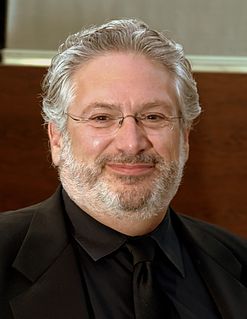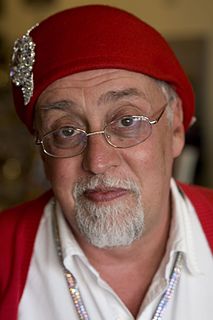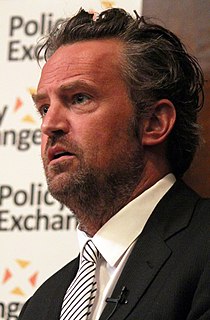A Quote by Harvey Fierstein
In Torch Song, I did that character almost non-stop from 1978 until I made the movie in 1987. Then I had some failure, which also colors how you react to doing other things.
Related Quotes
You have to fail, man, but you cannot allow failure to stop you from doing what you must do. Failing is just as good as succeeding in a lot of ways. It's how you react to it all. You can react to success the wrong way and be a total failure. Or you can react to losing with your whole heart, learn from it, and be a huge success. In stand-up, I've learned to know when I'm burning it up or when I'm being so-so. That's experience. I learn every single time I'm on a stage.
I played a couple of ideas and then had this unusual texture underneath which was like this little granulated kind of pipe organ almost like a scratchy record which he started [inaudible] brilliantly. "Oh I love that song." And when things go fine, it's good. So he started loving that song and that song was used quite a lot in the movie which is very granulated stuff on the guitar.
By the 6th grade I stopped doing ordinary things in front of people. It had been ordinary to sing, kids are singing all the time when they are little, but then something happens. It's not that we stop singing. I still sang. I just made sure I was alone when I did it. And I made sure I never did it accidentally. That thing we call 'bursting into song.' I believe this happens to most of us. We are still singing, but secretly and all alone.
But, finally, I had to open my eyes. I had to stop keeping secrets. The truth, thankfully, is insistent. What I saw then made action necessary. I had to see people for who they were. I had to understand why I made the choices I did. Why I had given them my loyalty. I had to make changed. I had to stop allowing love to be dangerous. I had to learn how to protect myself. But first… I had to look
I did enjoy singing the song, called "The Count", which is Count Olaf's big song that he sings to the kids when they first arrive with his henchpeople. He wrote it himself, and he thinks he's really, really talented, and it's a terrible song. So we had to learn intentionally bad choreography... We did these almost Lady Gaga-ish kind of movements, which were just awful, but that made me laugh
A terrible premonition washed over me. This was how the whole world would end.... They would devour the forest and excrete piles of buildings made of stone wrenched from the earth or from dead trees. They would hammer paths of bare stone between their dwellings, and dirty the rivers and subdue the land until it could recall only the will of man. They could not stop themselves from doing what they did. They did not see what they did, and even if they saw, they did not know how to stop. They no longer knew what was enough.
Obviously, when you're in theater, you have to be in character. You have to prepare for the unexpected. You have to be able to react to things that don't necessarily happen every night, or aren't supposed to happen every night. And you have to react to it in character. In six months, 192 shows, those things did happen. And the experience of that, the ability to stay in character, I feel like I've learned a great deal.
My favorite actor was, is, Michael Keaton. Certainly growing up, in the movie 'Night Shift' he did something brand new that I hadn't seen before that we all steal from now. And then it was in 1987 he did the movie 'Clean and Sober' and 'Beetlejuice' in the same year, and that was when I said, 'Wow, that's what I want to do.'
When you're no longer seeing yourself, in some ways. You're as close to being as you can be.I suppose that's consistent with the moment that the mind actually turns off, and is no longer questioning what you're doing. When the questions stop, that's when the real acting takes over. And trying to get to the point where the questions stop, "Would I do this? How do I feel about that as a character?" When those stop, and it's just doing X, Y, and zed, because that's what you'd do as this character, because you're inside this character somehow - that's when it really kicks off.
David's [Cunningham] a very interesting character. He has more integrity than is good for him. So, everything he did after that sort of undermined what he'd done. Other people who kind of took life more cheaply, would have really gone for it. David almost did everything he could to scupper the whole thing, which I very much admire, but of course it was deeply irritating then, because we wanted to make a bit of money! So we made this very catchy tune and then he added a bunch of weird stuff which was all very strange.
Some failure in life is inevitable. It is impossible to live without failing at something, unless you live so cautiously, that you might as well not have lived at all. In which case you have failed by default. Failure gave me an inner security that I had never obtained by passing examinations. Failure taught me things that I could not have learned any other way. I discovered I had a strong will and more discipline than I had suspected.
Advice? Focus on the craft. Study the greats. Try and understand how and why they made the writing choices they did. Then, start by copying them...just as an exercise. See if you can do similar things. Learn how to write a song like so and so. Then, when you've done that, write a song like yourself. Learn to color within the lines before going outside them.



































